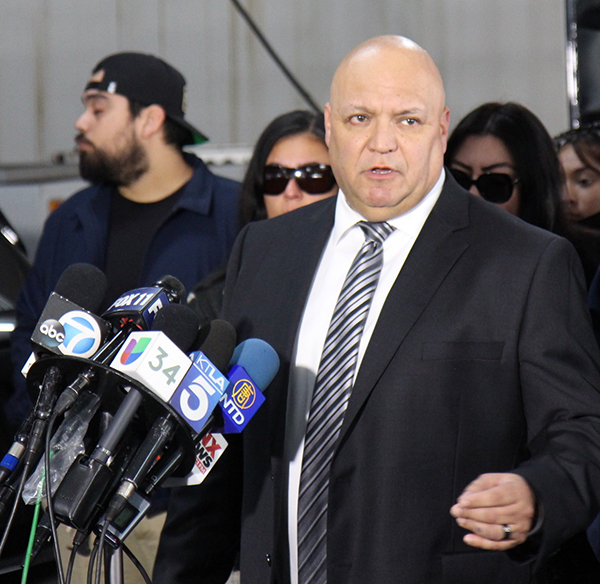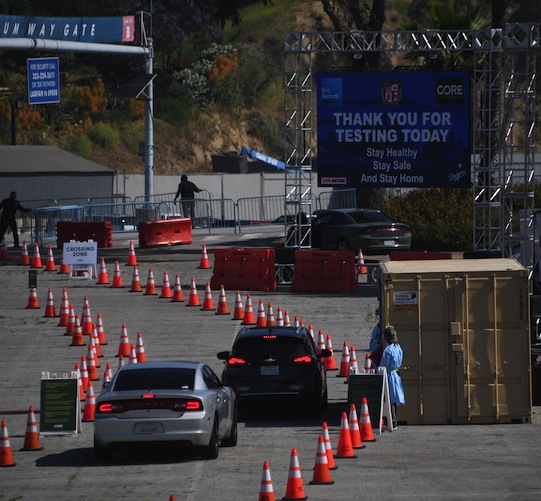State lawmakers debate journalism support measure

By Antonio Ray Harvey
Contributing Writer
SACRAMENTO — Last month, state Sen. Steven Glazer, D-Orinda, vowed to bring back a journalism support bill he authored that had hit a snag in the legislative process.
A few weeks later, the lawmaker lived up to his promise.
On June 27, the state Senate moved to advance Senate Bill 1327 with a 27-7 vote under the urgency clause — special language contained in the legislation that allows it to take immediate effect after the governor signs it.
SB 1327 would impose a charge — called a “data extraction mitigation fee” in the bill — on major digital technology platforms such as Meta, Amazon and Google to fund local news. Glazer pulled the bill from the floor in May when he discovered he didn’t have the minimum two-thirds votes for passage.
Now, that he has generated enough support to move the bill forward, Glazer called his push to pass it a “rescue effort.” SB 1327 is now on its way to the Assembly for review.
“We are in a moment of peril in our democracy, and our hollowed-out newsrooms are in the center of that crisis,” Glazer said during the opening of his presentation during a hearing for the bill on the Senate floor. “Let me provide some context. Democracies are the exception in human history. It’s not if they will fail. it’s a matter of when they will fail.
“Ours is 248 years young. Seventy-one percent of the world’s population is under autocracies. Now, in countries such as Hungary, Argentina and Turkey, we see these democracies teetering. You simply have to see their actions to curtail and take control of independent news media that was keeping these democracies honest. The canary in the democracy mine is independent news.”
A vote on the urgency clause must precede a vote on the bill and requires a two-thirds vote for passage. Glazer’s bill got exactly the amount needed to move off the Senate floor.
Seven Senate Republicans voted against SB 1327, including Senate Majority Leader Brian Dahle, R-Bieber). Sen. Scott Thomas Wilk, R-Lancaster, was the lone Republican to vote in favor of the bill.
SB 1327 has been getting pushback from digital tech giants and some publishers that are worried about losing advertising, the supposed threat of government influence, discrimination against larger publishers, and nonprofit newsrooms getting a slice of the mitigation fee.
Sen. Roger Niello, R-Roseville, voted against the bill. During the debate on the floor, Niello said it gives him “great pause to entertain a proposal” where over half the journalism industries today are “owned by hedge funds and individual investors,” he said.
The lawmaker who owns several high-end car dealerships added that the bill could bring “unintended consequences such as capital venture groups reaping the profits, should SB 1327 become law.
“That’s one of the things that happens when an industry goes through a drastic evolution … investors come in to take advantage of potential profit opportunities and investment opportunities,” Niello said of his concerns with SB 1327. “I am an unabashed capitalist myself. But they are not buying these newspaper groups for the sake of the mission of news reporting. To them it’s a business deal.”
Sen. Bill Dodd, D-Napa, who voted in favor of the bill, also had some concerns. He wants to make sure SB 1327 is legislation that would not fall into the hands of hedge funds that would purchase newspapers solely to reap funds because of the mitigation fee.
“What I’d like to see, by the time it comes back to the floor is that we have an opportunity to kind of see — maybe not a firm spending program — but at least something that has been thought out particularly so we’re not funding hedge funds,” Dodd said.
To qualify for the tax credit, news media outlets must initially circulate or distribute news content within the state and operate internet platforms.
SB 1327 proposes a 7.25% on gross receipts derived from data extraction transactions, according to the bill’s language. At the end of his presentation, Glazer made it clear that media outlets do not have to accept funds through the tax credit.
“This measure is content neutral (and) ownership neutral,” Glazer said. “If a publisher of an outlet doesn’t want to have the connection with a government through a tax credit, they don’t have to take it.”
Fees extracted from digital technology companies with a minimum of $2.5 billion in annual advertising revenue would provide $500 million in employment tax credits to news organizations in California. An additional $400 million in extracted fees would go directly to schools.
Sen. Lola Smallwood-Cuevas, D-Los Angeles, spoke of the ways public opinion, politics and civic life have been influenced by misinformation and disinformation since the decline of the journalism industry. A member of the California Legislative Black Caucus, Smallwood-Cuevas is a former journalist.
“These are efforts to make a difference,” Smallwood said of SB 1327. “I must applaud the author for his work particularly because the alternative must also include building a representative workforce within the newspaper industry, which this bill takes into account — ensuring that those who look like California tell the story of California.”
Antonio Ray Harvey is a reporter for California Black Media.





